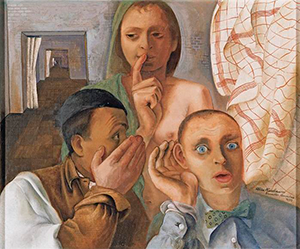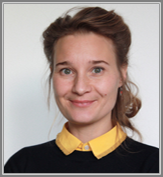The Concealment of Mental Maladies
 For centuries, mental illnesses have carried with them burning stigma, very often motivating the afflicted and their families to keep the condition secret. However, the definition, perceptions and actions related to psychiatric disorders are not static but change with the development of society and culture. The project explores family secrecy in connection to ‘madness’. It investigates what caused families to cover up mental illnesses, and how people’s motives and actions were interdependent with social norms and political agendas in the growing Danish welfare state during a time when mental hospitals and the field of psychiatry experienced great changes. During this period the main responsibility of the mental health of a family member was entrusted to the state, while at the same time the perception of and procedures around mental illness changed dramatically. To understand how family practices regarding psychiatric disorders were affected by these changes in public healthcare and official procedures and to deepen our knowledge about family culture as an agent of change affecting socio-political agendas, the project investigates patterns in communication, language discourse and actions concerning mental illnesses across different types of 'cultural testimonies': patient records, white papers, official documents, oral memoirs and fiction.
For centuries, mental illnesses have carried with them burning stigma, very often motivating the afflicted and their families to keep the condition secret. However, the definition, perceptions and actions related to psychiatric disorders are not static but change with the development of society and culture. The project explores family secrecy in connection to ‘madness’. It investigates what caused families to cover up mental illnesses, and how people’s motives and actions were interdependent with social norms and political agendas in the growing Danish welfare state during a time when mental hospitals and the field of psychiatry experienced great changes. During this period the main responsibility of the mental health of a family member was entrusted to the state, while at the same time the perception of and procedures around mental illness changed dramatically. To understand how family practices regarding psychiatric disorders were affected by these changes in public healthcare and official procedures and to deepen our knowledge about family culture as an agent of change affecting socio-political agendas, the project investigates patterns in communication, language discourse and actions concerning mental illnesses across different types of 'cultural testimonies': patient records, white papers, official documents, oral memoirs and fiction.
Marie Meier, PhD fellow
 MA in Angewandte Litteraturwissenschaft from Freie Universität Berlin. She also holds a Master in Second Language Acquisition and Cross-Cultural Communication from the Danish School of Education and has previously worked as a language teacher, editor and podcast producer. Her interest in literature, literacy, language and cultural studies has formed her cross-disciplinary approach to the field of history and social psychiatry.
MA in Angewandte Litteraturwissenschaft from Freie Universität Berlin. She also holds a Master in Second Language Acquisition and Cross-Cultural Communication from the Danish School of Education and has previously worked as a language teacher, editor and podcast producer. Her interest in literature, literacy, language and cultural studies has formed her cross-disciplinary approach to the field of history and social psychiatry.
